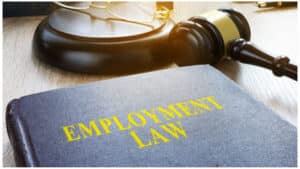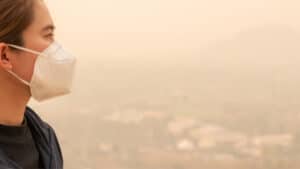Written By: Vanessa C. Deniston and Christopher B. Dolan
This week’s question comes from Mason H. who writes:
Q: “I am currently employed by a private company doing contracted work repairing roadways. I am considered an essential worker in California. As the sole breadwinner in my family, I am truly grateful to have steady work and I would never want to put my job in jeopardy. Lately, my manager has been encouraging everyone on my crew to get tested for COVID-19. I feel just fine, but I want to get tested as I am exposed to others on a daily basis. I am worried if I test positive for some reason that will give them cause to fire me. Should I be worried?”
A: Dear Mason, In this strange and challenging new economic reality, I completely understand your instinct to protect your job at all costs. Essential workers like you have to weigh economic survival against their own physical health and family’s safety. Given the ever-changing landscape of the virus and its effect on the economy, many employees are unclear about their rights and many employers are uncertain about their obligations. This can lead to irrational decision-making fueled by panic or fear.
Thankfully, the city of San Francisco has stepped up to address the problem and provide clarity. The City has drafted and introduced a new ordinance that offers special job protections for essential workers like you with respect to COVID-19 testing. The proposed ordinance would make it illegal for an employer to fire, threaten to fire, demote, suspend, discipline, reduce employee benefits or in any way discriminate against individuals who receive a positive COVID-19 test, show symptoms of the virus, or make a decision to quarantine after being exposed to the virus. Employers would not be able to question employees who do not appear ill about whether they have medical conditions that would make them more vulnerable to the virus. Though, employers could request medical exams for incoming employees as long as the policy is applied to all applicants.
These protections would also be extended to job seekers in San Francisco. Under the proposed new ordinance, employers could not ask applicants to be tested for the virus before extending job offers and could not rescind a job offer if the applicant test positive. Employers would be required to make reasonable accommodations for individuals who test positive for the virus or quarantine after suspected exposure.
This proposed legislation, should be signed into law, is a significant expansion of employee rights in San Francisco; previously, employees eligible for certain benefits through their employer (i.e. medical leave) could avail themselves from legal remedies. That is why this new proposed ordinance is vital for essential workers who have already used up their benefits or who never had them in the first place. It should be noted, however, the law would apply only to employers in San Francisco.
California employees outside of San Francisco must still look into the California Family Rights Act and the Americans with Disabilities Act for leave guidelines. Employees outside of San Francisco should also review their current city ordinances, as many cities across California have established their own additional protections for employees in light of COVID-19.
COVID-19 has handed employers a compelling “good faith business reason” for mass layoffs as they are struggling to stay afloat financially amid statewide closures. Many employers, however, are using the virus as an excuse to discriminate against and fire employees who test positive for the virus or elect to quarantine at home as a result of exposure. Such employers often claim they are “restructuring” or “downsizing” in light of statewide shutdowns. In such cases, the true reason, whether it be the fear of a potentially infected employee spreading the virus to others or a general unwillingness to accommodate employees that wish to err on the side of personal safety, is not always easy to establish from an evidentiary standpoint. The new ordinance, however, heightens the scrutiny on employers terminating essential workers and gives employees broader protections.
Many employees may still be skeptical about how The City actually will enforce this ordinance (if passed) and hold employers accountable. Under the law, the San Francisco Office of Labor Standards Enforcement would be tasked with investigating reported violations and would have the power to award certain remedies to affected employees, such as lost wages and job reinstatement. Civil penalties would be imposed on employers who violate the ordinance, ranging from $1,000 to $10,000+ depending on the number of violations committed, including a single violation of $1,000. Such penalties would only serve as a deterrent if employees consistently report suspected violations and the Office of Labor Standards Enforcement follows through on imposing penalties and awarding remedies.
If you believe you have been retaliated against or terminated because you tested positive for COVID-19 or because you elected to quarantine at home after suspected exposure, an employment attorney can assist you in reporting the violation to the San Francisco Office of Labor Standards and Enforcement and possibly pursue additional civil remedies on your behalf.










